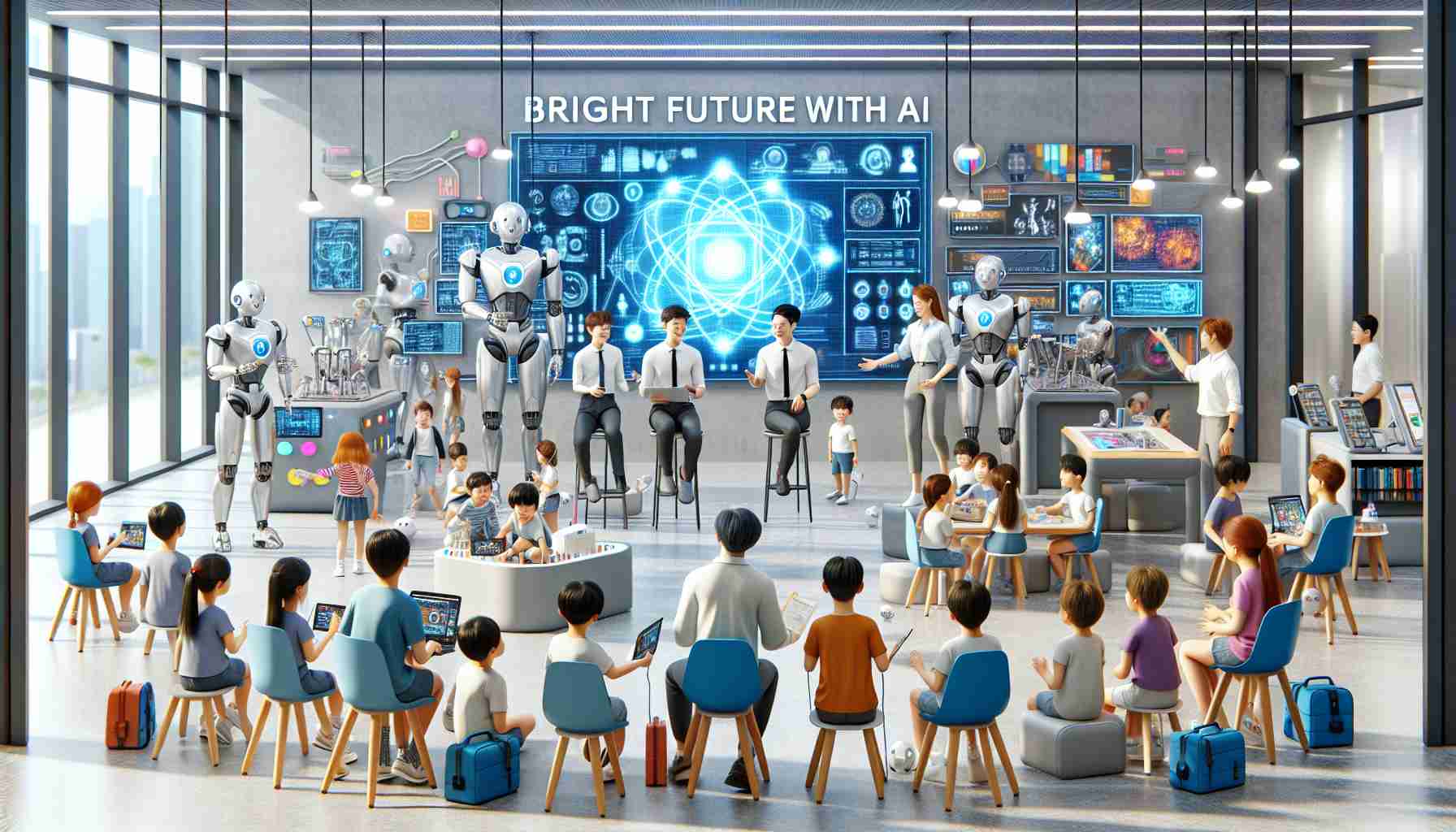Busan National Science Museum, in collaboration with KT, launches an advanced AI education program for elementary school students.
The National Busan Science Museum has recently announced an addition to its educational offerings – an advanced level course in artificial intelligence named ‘AICE FUTURE’ for students in grades 3 through 6. This program utilizes block coding to facilitate understanding of algorithms and nurture computational thinking among young learners.
Demonstrating a commitment to tech education, the museum became the first in Korea to introduce an AI course for elementary students by partnering with the telecom giant KT. October last year saw the successful graduation of over 160 students from the initial ‘AICE FUTURE’ course, solidifying the program’s effectiveness and popularity.
Due to high demand and early completions of applications from all over Korea, the institution has responded with the new ‘AICE FUTURE – Level 2’ course. This deeper dive into AI, starting next month, will operate on Sundays for eight sessions, focusing on data analysis and machine learning coding based on block coding principles.
Enhancing AI Skills: The ‘AICE FUTURE – Level 2’ Certified by an AI Utilization Ability Test
As a step up from the foundational knowledge gained in Level 3, the upcoming tackle course aims to refine students’ competencies, culminating in an AI utilization ability test for certification.
Summer Camp for AI Stars: Designing the Tech Leaders of Tomorrow
The Busan National Science Museum is also planning to boost specialized talent in AI through the ‘AICE FUTURE AI Summer Camp (Levels 2 & 3)’ slated for July and August. This two-night, three-day event will host lectures by AI experts and developers, as well as offer career Q&A sessions, and stargazing activities, providing students with a comprehensive and engaging learning experience.
Most Important Questions and Answers about AI Education for Elementary Students
Q: Why is it important for elementary school students to learn about AI?
A: Introducing AI education to elementary students is crucial because it prepares them for a future where AI will be deeply integrated into daily life and various industries. It encourages early development of computational thinking, problem-solving, and technical skills that are vital in the digital age.
Q: What are the key challenges in implementing an AI education program for young learners?
A: Key challenges include designing age-appropriate curriculum that is engaging and understandable, training educators to effectively teach AI concepts, and ensuring that there is equitable access to these educational resources for all students.
Controversies and Challenges in AI Education
One controversy surrounding the education of AI at such a young age is the debate over screen time and the impact of early exposure to technology on children’s development. Some argue that excessive screen time can lead to negative consequences, while others argue for the benefits of technology literacy from a young age.
A challenge is ensuring that children understand the ethical implications of AI and develop a responsible attitude towards its use. As AI becomes more prevalent, fostering a society that uses AI ethically and thoughtfully is as important as teaching the technical skills required to create and manage AI systems.
Advantages and Disadvantages of AI Education Programs Like ‘AICE FUTURE’
Advantages:
– Provides a strong foundation in a field that is becoming increasingly important in various career paths.
– Encourages creativity and problem-solving skills through hands-on learning experiences.
– Potentially reduces the skills gap in the tech industry by preparing the next generation of workers from an early age.
– Can inspire interest in STEM fields and support gender diversity by engaging all children equally in tech education.
Disadvantages:
– May perpetuate the digital divide if not all students have access to such programs.
– Could lead to overemphasis on technology in education at the expense of other important subjects or activities.
– Instructors may not be adequately trained to teach AI, which can affect the quality of education.
For further reading on the broader context of AI in education and society, consider these links to the main domains of reputable sources:
– UNESCO often discusses AI and its implications for education and ethics.
– World Health Organization (WHO) provides guidance on screen time and its impact on children.
– International Society for Technology in Education (ISTE) offers resources and standards for learning, teaching, and leading in the digital age.
Please note that these links were considered valid at the time of writing; however, the validity of a URL can change over time, and due care should be taken to ensure that a link is still active and relevant.

